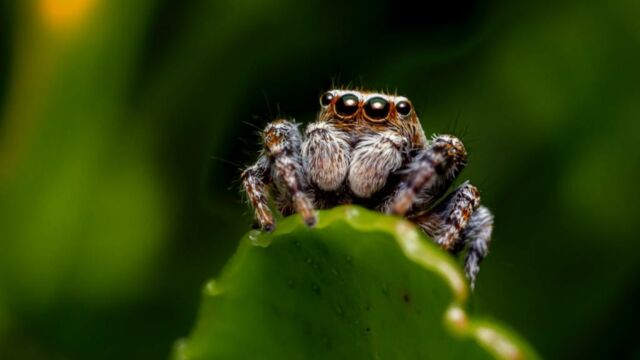Never kill a spider in your home, here's the surprising reason why

In an article, an American entomologist warns against a seemingly banal and inconsequential act: Killing a spider.
'Stop the slaughter!' That's almost the cry of alarm issued by Matt Bertone, an American entomologist, in a plea to protect... Spiders!
Discover our latest podcast
A speech of defence that looks like real praise for our arachnid friends. Because while they are sometimes considered repulsive, these arthropods can be a great help to us on a daily basis. Discreet inhabitants of our homes, spiders protect us from harmful insects and even prevent the transmission of certain diseases.
More under this adMore under this adUseful to our inner ecosystem
'Don't kill the next spider you see in your home', begs Matt Bertone, who is quick to justify this surprising demand in The Conversation:
Why? Because spiders are an important part of nature and our inner ecosystem - just as they are friendly organisms in their own right.More under this adMore under this ad
It has to be said that these little beasts, whose appearance - let's face it - is sometimes repulsive, do us a lot of good.
Among other benefits, spiders capture and ingest certain harmful insects that could invade our homes. With most no more aggressive than they are dangerous, the inhabitants of the webs that sometimes line the ceiling of our homes even rid us of some of their own species.
More under this adMore under this adUnintentionally intrude into homes
As the specialist points out, their intrusion into our homes is often neither voluntary nor permanent. Some of them find themselves accidentally trapped when we close the doors or windows of our home. They then take advantage of the smallest gap to regain their freedom. For many of them, it is outside that life is the most pleasant.
To study in more detail the life of these arthropods, Matt Bertone and his colleagues conducted a visual census of their presence in about fifty homes in North Carolina, USA, in 2018. Their goal: to characterise their diversity within urban and suburban homes. And the results of their investigations were eloquent to say the least.
More under this adMore under this adOf the fifty homes visited, none had been neglected by spiders. The most frequently encountered species were the house spider and another family of house spiders, the Pholcidae, which often weave their webs in the darkness of our cellars and basements.
Read more: A study shows the precise time that spiders are more likely to enter your home

Fighting against pests
When it comes to food, spiders are notoriously picky eaters, preying on a wide variety of insects in the home. Among other prey, spiders are particularly fond of mosquitoes. A pest that they trap in their silk threads, thus sparing us the bite.
In Africa, some species are even capable of choosing blood-laden Diptera, in this case females, as revealed by a 2005 study published in the PNAS. As a result, spiders rid us of pests that, in addition to being annoying, sometimes turn out to be vectors of disease. Matt Bertone warns:
More under this adMore under this adKilling a spider therefore doesn't just cost the arachnid its life, it can also deprive your home of an important predator.
And to say the least, spiders are not idle in this area. According to a study published in 2017, our planet is home to a total of some 25 million tons of spiders that consume between 440 and 880 million tons of insects per year.
More under this adMore under this adRead more: Shocking death of 19-year-old student following spider bite
Evidence of a healthy home?
While the discovery of a spider web can disgust or even terrify some, it is in no way a sign of lack of cleanliness, contrary to what is often assumed. Quite the opposite, the presence of spiders is even a sign of a healthy home. Indeed, these arachnids are fussy when it comes to the environment where they choose to settle.
If specimens choose your home, it means that it is not too confined, too hot, or too humid. The same is true if they choose your garden. It is because your garden is completely healthy, free of pesticides, and other chemicals.
More under this adMore under this adMove them rather than kill them
As scary as they may seem, it is important to remember that spiders are generally harmless, much more vulnerable to the threat we pose to them than the threat they pose to us. For the most phobic, the simplest and most pacifist solution is to evacuate the arachnid by a gentle method.
As Matt Bertone explains:
If you really can't stand that spider in your house, apartment, garage or anywhere else, rather than crushing it, try capturing it and releasing it outside. It will find somewhere else to go and both parties will be happy with the outcome.More under this adMore under this ad
Rather than killing them, let's learn to live with these roommates who ultimately want nothing but good for us... At least for the majority of them!
This article has been translated from Gentside FR.
Sources used:
The Conversation: 'Should I kill spiders in my home? An entomologist explains why not to'
PNAS: 'A spider that feeds indirectly on vertebrate blood by choosing female mosquitoes as prey'
The Science of Nature: 'An estimated 400-800 million tons of prey are annually killed by the global spider community'